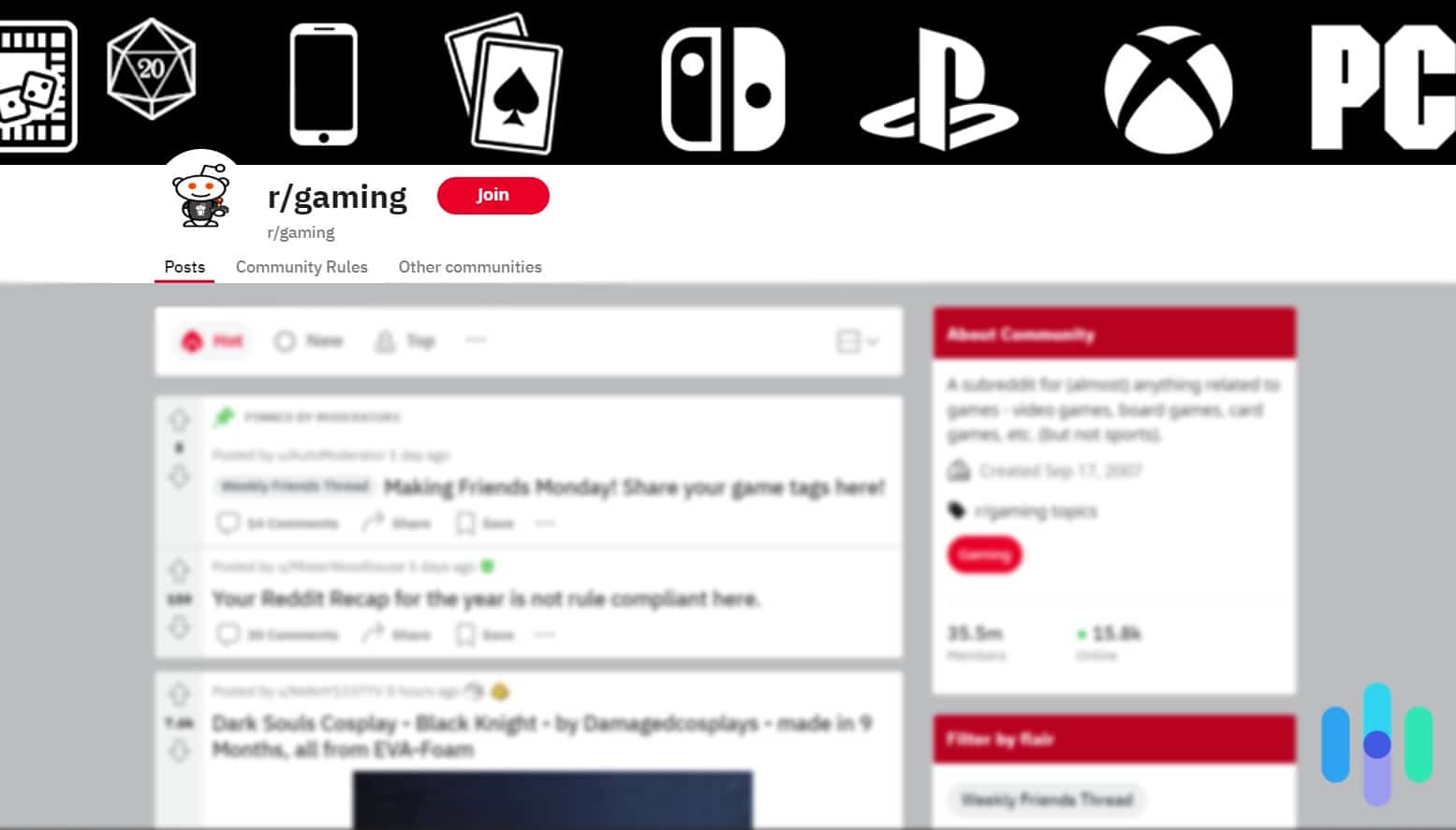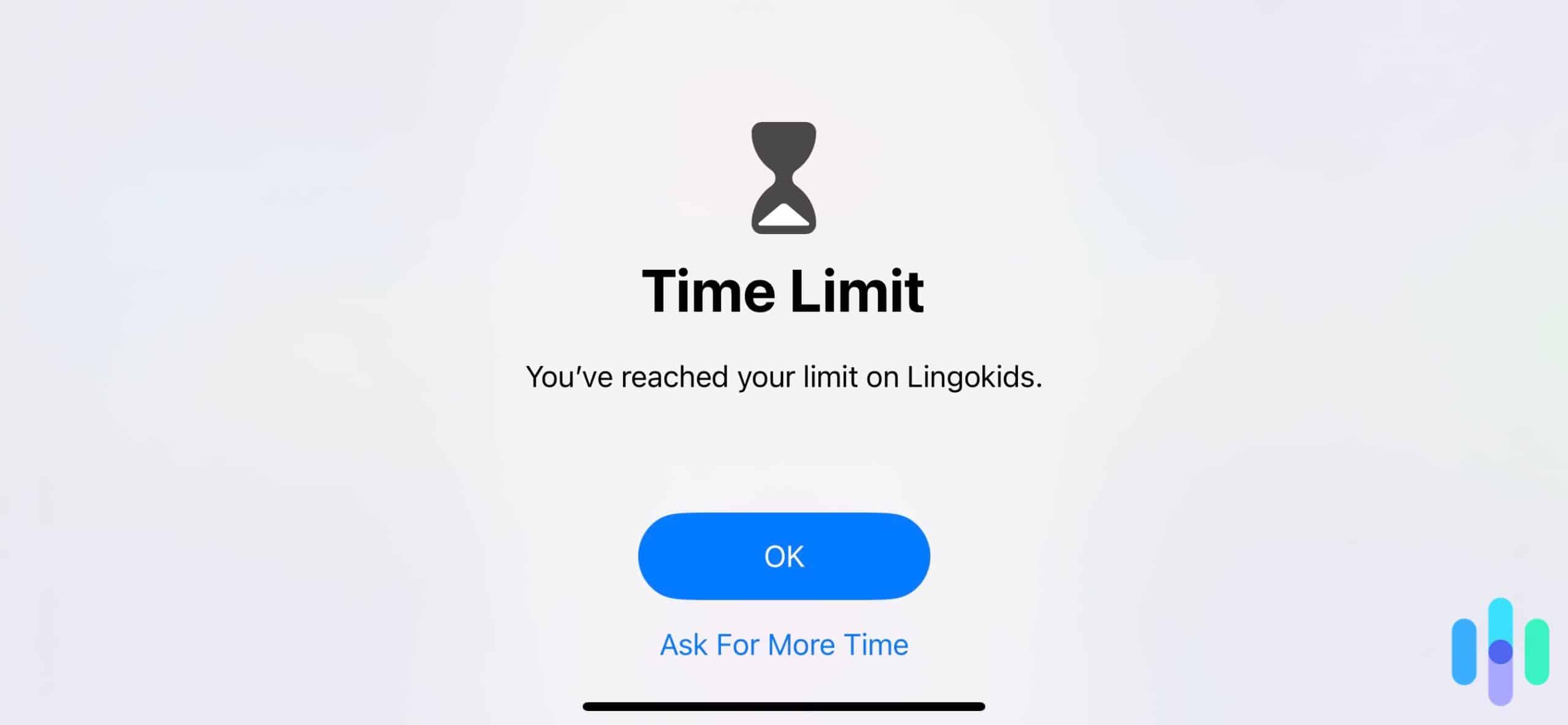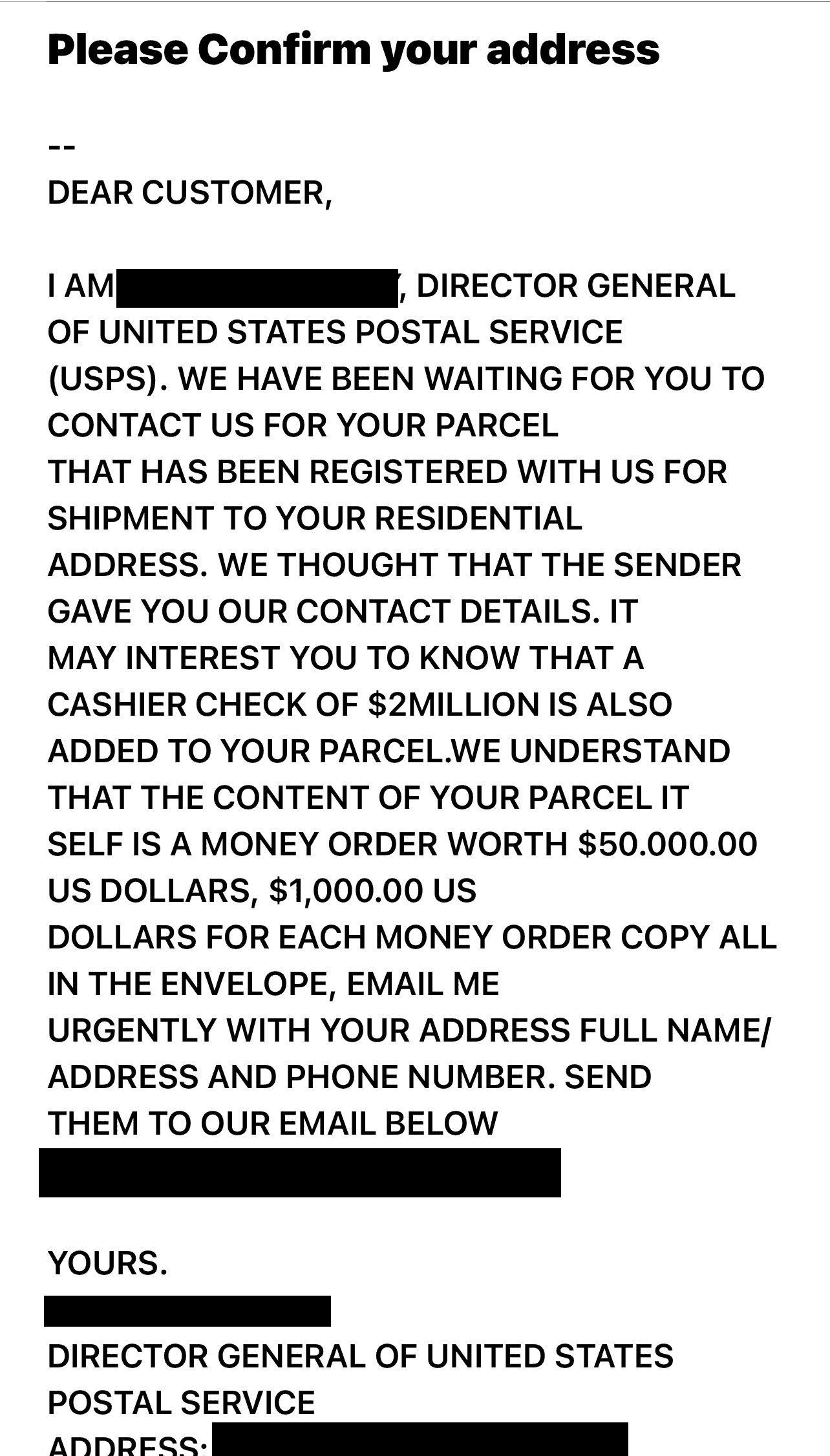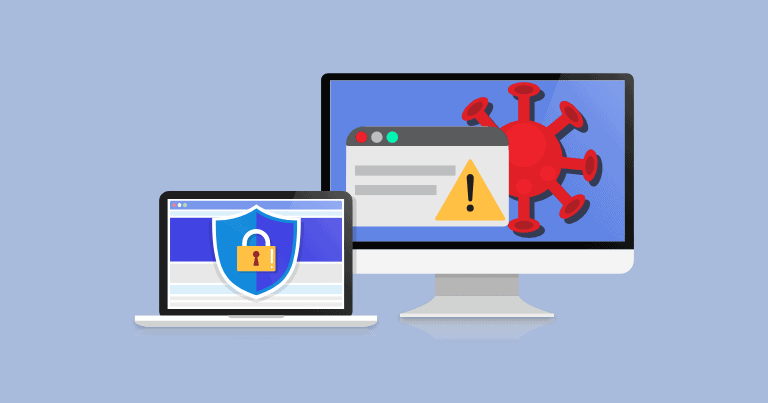Since Snapchat hit app stores in 2011, it’s seen quite a bit of change. Originally named Picaboo, the app first began by launching stories and geofilters. While the concept is more or less the same, the app has new functions like Memories, Bitmojis, Snap Originals, Spotlight, and even an AI chatbot. It’s still best known for its self-deleting messages, even though there are a whole bunch of content-hiding apps that kids use these days.
As with most social media platforms, Snapchat’s evolving safety has been a concern for many users throughout the years. And according to our roundup of cyberbullying statistics, Snapchat is the second-most common platform where kids get cyberbullied. So, those concerns are definitely valid. But, the app can still be used in a harmless way, especially if you prioritize your personal digital security. Still, there are a few risks to consider before using it or allowing minors in your home to download it.
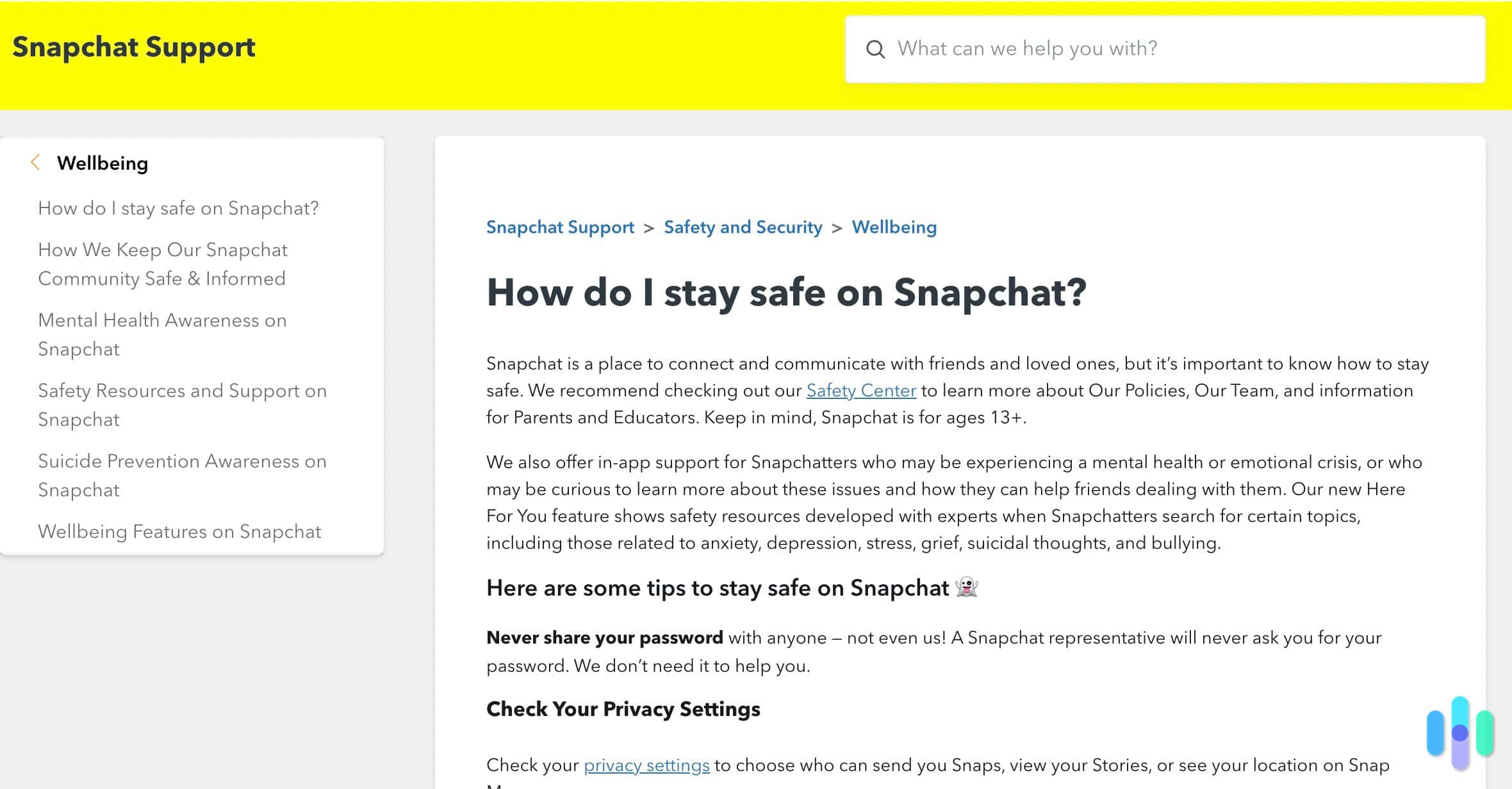
Here’s our take as digital security experts on the overall safety of Snapchat.
Snapchat Scams: What Are They?
Scams are commonplace in the modern age — especially when it comes to social media. While we’re not saying Snapchat itself is behind any scams, the same doesn’t go for users of the social media platform. The app does its part to help bring awareness to scammers, but unfortunately, many still fall victim to scams on the app. The best way to avoid scams on Snapchat is to be aware of the different schemes people run. You might also want to consider using one of the best VPNs on the market to hide your IP address and other digital data.
The Five Most Common Scams on Snapchat
Here are a few of the most common scams to look out for:
- Romance scams: Many times this type of scam will begin on a dating app. The scammers behind this con will typically use fake photos of random people to lure in innocent daters. Once they’ve developed a rapport and built trust with a person on a dating app, they’ll ask them to keep the conversation going on Snapchat. After a while, they may start asking for money or your personally identifiable information. These fraudsters won’t always jump right into these steps. Some have been known to keep this facade going for several months, if not longer.
- Meeting offline scams: Meet-up scams are usually tied to romance schemes but can be independent of them as well. Fraudsters will sometimes pose as casting agents, photographers, or talent scouts to manipulate users. When tied to a romance scam, they’ll continue to use their victim’s emotions to trick them into sending them money or personal information without actually meeting up with them. While the promise to meet up might be there, their intentions are almost always for personal monetary gain.
- Fake contest scams: Winning a contest can be a joyous and thrilling experience — when it’s real. That feeling is one scammers have long counted on to trick bystanders into openly sharing their personal details. Cybercriminals often inform people through social media, like Snapchat, that they’ve won a prize or contest. The best way to prevent getting scammed is to never give your banking or credit card details in exchange for a prize. The same goes for exchanging money for a prize. Instead, search the official organization online and reach out directly to verify a win.
- Celebrity impersonation or charity scams: Scammers on Snapchat are known to create fake accounts to impersonate celebrities. They use these accounts to message users on the app and ask that money be donated to a charity for one reason or another. Usually, this message will be accompanied by a special link to a fake website where they fraudulently capture your payment information. This is a great example of a phishing scam that’s evolved to appeal to social media users.
- Sugar daddy or momma scams: In some instances, con artists will pose as sugar daddies or sugar mommas to scam younger Snapchat users. They may promise to provide financial gifts in exchange for companionship or romance, without ever intending to. These scammers may ask their targets to cover bank fees or to share banking information or social security numbers. This is personal information that should never be shared with unknown people online. If this sounds like something you’ve done, you can still get your identity back with one of our recommended identity theft restoration services.
These are only some examples of the different scams you can encounter on Snapchat. As technology advances, so do scams. The best way to avoid any scam is to refrain from ever sending personal details or money to an unverifiable source for any reason.
FYI: If you want to stay a step ahead of all scammers online, your best bet is to stay updated on all the current internet scams.
Snapchat and Your Privacy
Before signing up for Snapchat, it’s important and helpful to understand its privacy policy. Privacy is a major part of online safety — especially on social media platforms. Another point to consider is exactly what type of data Snapchat gathers, how it’s distributed, and what you can do to control your information.
What Data Does Snapchat Collect?
When we read Snapchat’s privacy policy, we found out it collects your data from three major sources.1 That includes information they gather while you use the app, data they receive from third-parties, and other data they collect with your permission. This is the typical way big tech companies gather data on you. Here’s an overview of the data Snapchat collects:
- Location data: One of the major pieces of data Snapchat collects from users is their precise location using GPS signals. This information is collected with a user’s permission. In the past, Snapchat has noted that it uses location data to provide users with Geofilters. However, others on the app may view your location via Snap Maps if you’re not careful.
- Camera information: Snapchat can collect camera information from Apple’s TrueDepth camera. While the company says this data is used to “improve the quality of lenses,” it may not be something you’re comfortable with.
- Personal information: Snapchat collects information that you provide upon signing up. That can include your name, username, password, email address, phone number, date of birth, and any images you set as your avatar. For in-app purchases, Snapchat may also collect your payment information.
- Activity data: Depending on what you’ve allowed and agreed to, Snapchat can store activity data. This may be in the form of how often a user views a specific website, what they search, how they use Snapchat services, and their page views, IP addresses, and cookies.
- Messaging and Snap data: When it comes to your messages and Snaps, those are also recorded by the system and by anyone who decides to copy or save them.
- Device/technical data: Snapchat can collect information on your device type, hardware, software, and the operating system it’s running on. They can also see the apps, browsers, languages, and keyboards you download and use.
FYI: If you’re concerned that someone may try to use your location to their advantage, you should keep it private or change it immediately. Read our post on how to change your Snapchat location.
Does Snapchat Share Data With Others?
In this section, we dive deeper into how Snapchat shares your data with third-parties. According to its privacy policy, the app uses the information it collects to “provide you with personalized products and services.” We have to hand it to them, as they’re very transparent about who they share information with, what it includes, the reasons for sharing it, and if they transfer it out of the country it was gathered from.
This transparency comes at the behest of regulations like the California Consumer Privacy Act (CCPA).2 Although, 47 states barely have any data privacy laws — and some have none at all.
>> Related: Is Temu Safe?
What Data Does Snapchat Share With Third-Parties?
Regardless of how you feel about regulations like the CCPA, we’re glad we can get an inside look at the parts of our data that Snapchat shares. When you use Snapchat, here’s what you can expect them to share:
- Snapchat and the public: Snapchat collects and shares data with outside parties, so it’s only natural for that same information to circulate internally. Snapchat may share details with your friends and other users; an example would be the Stories you post. There are also specific public features you can use, including your profile, Snap Map, Spotlight, and Community Stories.
- Third-party apps: Snapchat may share your personal details with third-party apps if you allow it.
- Service providers: Your activity can be shared with Snapchat’s service providers to process the information for the app. However, the app has stated they don’t share private communications with them.
- Business partners: Snapchat shares your activity details with businesses and other partners to provide services for you. One example of this is using OpenTable within the app to make dinner reservations.
- Legal and safety partners: Snapchat shares your activity details for legal, safety, and security purposes. That may be for governmental requests, investigations, fraud resolutions, and user protection.
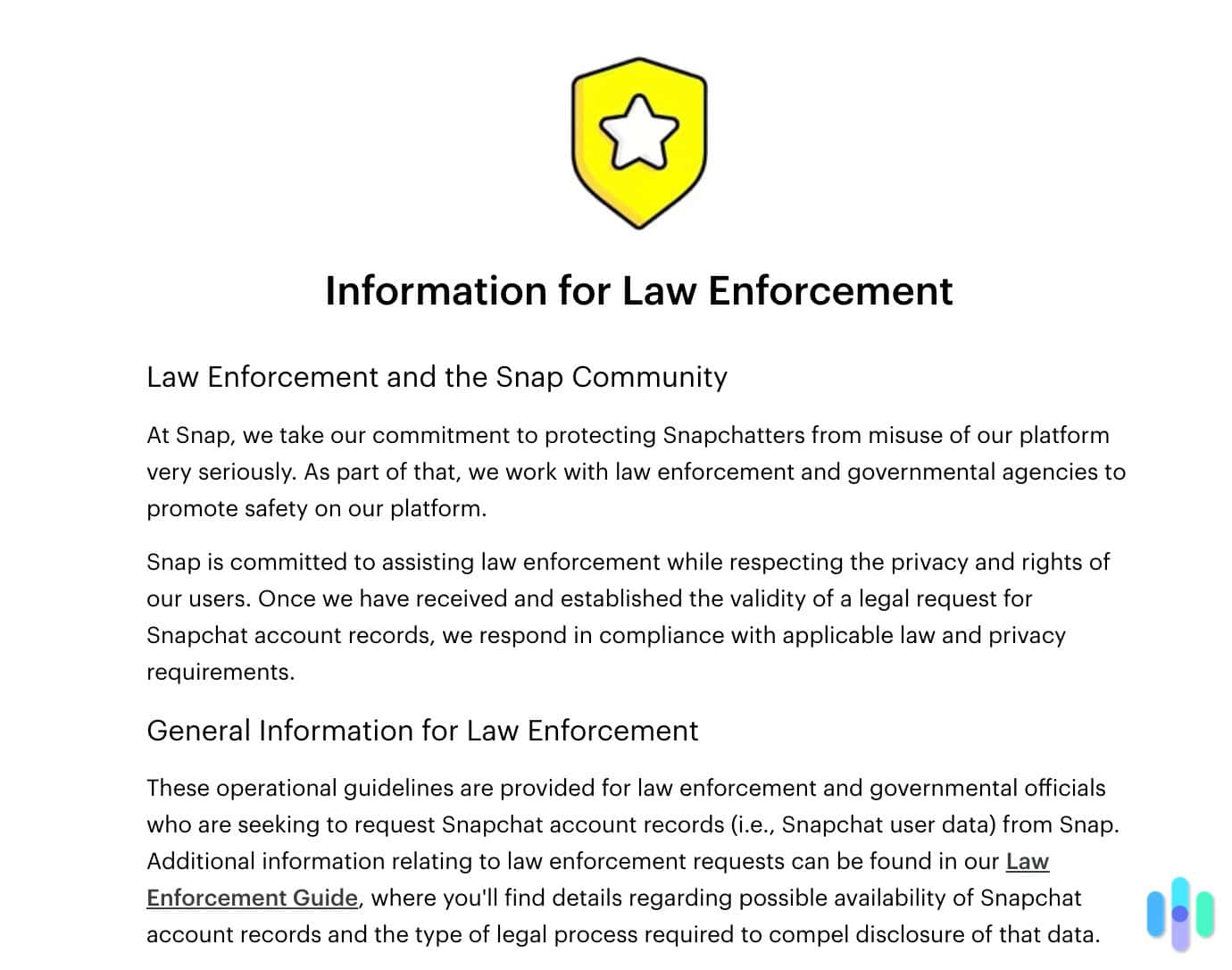
- Affiliates: Sometimes your information may be distributed to internal affiliates and subsidiaries of Snapchat to carry out the app’s services.
- Anti-fraud partners: The app shares your device activity with industry and anti-fraud partners to prevent fraudulent activities. We think you should take fraud just as seriously with one of the best identity theft protection services with fraud detection.
- For mergers or acquisitions: If Snapchat were to sell the business, they’d be legally able to share your data and information with a new successor or affiliate.
The Facts About Snapchat
| Who owns Snapchat? | Snap Inc. was co-founded by Bobby Murphy and Evan Spiegel. |
|---|---|
| When was the social media app founded? | Snapchat was founded in 2011. |
| How many users does it have? | As of 2024, Snapchat has around 800 million monthly active users around the world.3 |
| How much revenue does it make? | According to Snap Investor Relations, the company made a revenue of $4.6 billion in 2023.4 |
FYI: Snapchat isn’t the only entity collecting and distributing your data. Here’s a guide on how to securely store your information online and offline.
Should You Let Your Kids Use Snapchat?
It’s natural to question whether or not your child should be allowed to use social media. Most parents want stricter regulations on social media platforms to better protect their kids. Snapchat is no exception. Protecting your kids from cyberbullying, online predators, mature content, and child identity theft via social media is usually a top concern for parents. While cyberbullying, online predators, and mature content can find its way into almost any online platform, you can protect your children from identity theft with a quality identity theft protection service for families.
While Snapchat does its best to prevent that from happening, it’s still very possible, considering how difficult it is to manage 800 million monthly users and their individual interactions. While it can be harmless entertainment for most users over the age of 13, there are risks to consider.
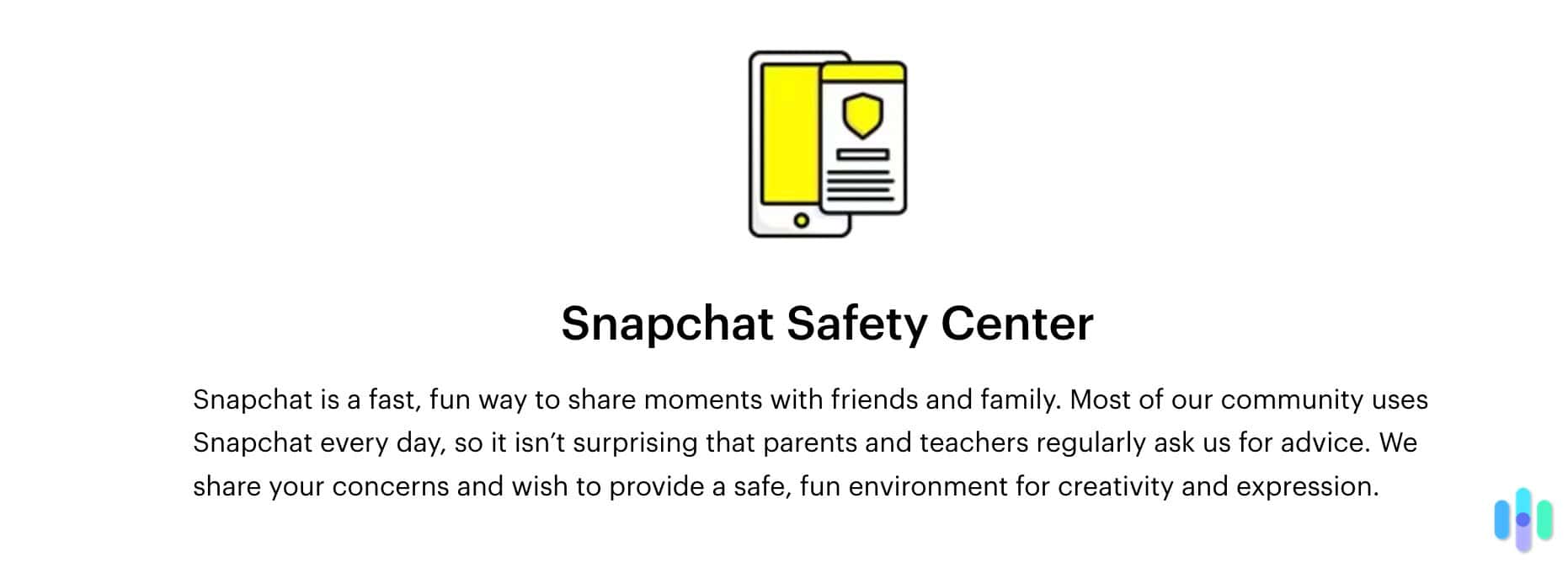
Tips to Keep Your Kids Safe When They Use Snapchat
Here’s what we think parents should keep in mind before letting their kids use Snapchat:
- Privacy and safety: If you’re concerned your child may meet and talk to strangers online, this may not be the app for them. As with most social media platforms, it’s easy to add people you know and just as easy to have a long friends list full of strangers.
- Direct messaging: When monitored, this can be a great way for younger kids to stay in touch with their peers outside of school settings. When the app first became popular, some users would send intimate photos assuming they were only visible for a few seconds. This is not the case and parents should always have this conversation before their kid downloads Snapchat. It’s also important to keep an eye out for the 10 most dangerous online challenges that kids record for Snapchat videos.
- Location sharing: This feature can be risky for anyone, but especially for a younger, more vulnerable generation. To enhance safety on the app, we recommend hiding your kid’s location.
- Time and distraction: As with most social media apps, Snapchat can be incredibly distracting. It’s important to consider how much time your child spends on the app, especially with Snapstreaks and Stories adding pressure to spend more time on the app.
Ultimately, the decision to let a kid download Snapchat is up to the parent. While we don’t recommend one route over the other, we urge parents to monitor how their child uses Snapchat.
FYI: The debate on letting kids use social media is ongoing. To help make the right choice, here are four of the most dangerous apps for children.
Recap: Is Snapchat Safe?
Snapchat is undoubtedly an entertaining social media platform. When used correctly, there’s little to be concerned about. Still, it’s important to be aware of what your kids share with the platform and other users to keep your kids safe online. Keeping in mind the risks mentioned throughout this article, as well as how to avoid each danger, can help Snapchat remain enjoyable each time you or your kid hops on.
Snapchat Frequently Asked Questions
-
Can I remove my data from Snapchat?
You may be able to clear different types of data from your Snapchat Settings. This includes conversations, contact data, search history, autofill, lenses, top locations, cache, shopping history, and more.
-
Does Snapchat use cookies?
Yes, Snapchat uses various types of cookies. You can view the Cookie Information Page on Snap.com to find out which cookies they use, for how long, and for what purposes.
-
Are children below the age of 13 allowed on Snapchat?
No, children under the age of 13 aren’t allowed on Snapchat.
-
Can Snapchat access your camera?
Yes, Snapchat can access your camera. However, you must grant the app permission to do so first. You may revoke this permission at any time in your phone’s settings.
-
Does Snapchat show personalized ads?
Yes, Snapchat will show you personalized ads. Since the social media platform is largely supported by advertising, it works with advertisers to show ads to users who may be the most interested in them.



